| Can you describe yourself for the readers who might not be familiar with you? |
| Sure, my name is Shira. I’m the singer of the all-female punk rock band, Shiragirl, and the founder of Gritty In Pink. We’re a new platform aimed at empowering women in the music industry. |
| So, in the early 2000s, your band, Shiragirl, crashed the legendary Warped Tour and eventually ended up getting your own stage to showcase the best female rock artists. What can you share about that experience? |
| Yeah, so I was working on the tour in 2003 and I noticed no female musicians on stage. So, in 2004, we crashed the tour in a pink RV and ended up creating an official stage for over 300 female-fronted bands in 2005; including Paramore on their first-ever tour, and Joan Jett. We also got in the Rock and Roll Hall of Fame Warped Tour exhibit. So, it just sort of set me off on this lifelong crusade, you know, to carve out a space for women in music. But yeah, I’m happy to tell stories all day about the Warped Tour. A lot of fun memories went down, you know, Joan Jett really took us under her wing and was hugely supportive and inspirational, um, you know, when it came to helping the stage. And she would literally bike over and watch the girl bands from the side of the stage. And actually, I got to perform with her on the last day of Warped ’06. We did “Bad Reputation” on the stage, and she was like, “You’re gonna sing lead, and I’m gonna play guitar and sing backup.” And we were rehearsing, like, right before we went on stage. I felt like I was in The Runaways. Her and her label, Blackheart Records, have always been super supportive of Gritty In Pink and continue to be supportive of all my endeavors. |
| That’s so cool, Joan is total rock royalty! How did that experience shape you into the musician and overall entrepreneur you’ve become? |
| Yeah, you know, I grew up in New York and New Jersey and became really involved in the Riot Grrrl NYC scene. And then, this was when I discovered feminism and DIY culture and Bikini Kill and activism. It sort of set me off on this lifelong crusade, you know, to carve out a space for women in music and other male-dominated industries because what industry isn’t male-dominated, right? I also have to say, Kevin Lyman, the founder of Warped Tour, who has become a mentor and now an investor in Gritty In Pink, has been a huge influence on me and is like family to me. I mean, so many aspects of the Warped Tour, from all the friends I’ve made, the connections, the network, and then, of course, being able to perform. Because at the end of the day, my biggest passion is being an artist and performing. And being able to connect with an audience out on that tour and seeing what resonates and having young girls come up to us and say, “Wow, I didn’t know I could be in a band,” you know, and being influenced. So much of that tour really just influenced where I am today. And also, you know, learning to not take no for an answer, right? Because we actually did pitch Kevin on the idea of a tour and a stage, and he said at the time, it was the 10th-anniversary tour, he said, “We got a lot going on, let’s do it next year.” But when you’re 21, like, next year is like 10 years, you know? So, myself and my band, you know, we just did it anyway. And so, that kind of taught me, you know, the power of just sort of taking the power into your own hands, you know, just showing up and doing the damn thing. |
| Absolutely. So, what is the message behind the music of Shiragirl? |
| I mean every song is different and has its own message, but ultimately, I think it’s all about being empowered and speaking your mind. And, you know, specifically empowering not just women and gender marginalized groups, but underrepresented communities in general, whether it’s the queer community, which I’m proud to be part of, racial minorities, etc. It’s just so important, you know, now more than ever, it seems, as we see some of these rights getting rolled back. And that’s what my next song is about, to speak out and be proud. |
| Exactly. So as you said, you’re releasing a new single, which was released last Friday. |
| Yes. |
| Cool. So can you explain what this song focuses on and what kind of inspired you to write it? |
| Absolutely. So, the song is called “Rights Back Right Now.” It was inspired by the overturn of Roe v. Wade, which was just about a year ago now. We just passed the one-year anniversary, sadly. And to see all the impact it’s had across the country, it’s just heartbreaking. But when the decision came down, I remember where I was. I was sitting here at this very desk and I just canceled all my meetings, dropped everything, and went down to protest in downtown L.A. at the courthouse. And we had decided to team up with a local organization to do an emergency protest concert on a flatbed truck, kind of bringing in the original spirit of the Shiragirl stage, to the U.S. courthouse. And it was incredible to see how our community all rallied. I mean, everyone, from our sound woman to our artists, came. People wrote songs just for the occasion. Fat Mike from NoFX came, and he wrote a song. And just seeing how everyone came together and dropped everything in their lives for this important issue was very inspiring to me. So literally coming back from the protest is when I started writing the lyrics. And we had already been working on this track, actually, but we didn’t know. So, I knew I wanted it to be about women’s rights, but we didn’t know exactly what direction it was going to go. It’s funny, the process of songwriting sometimes, especially for me. I had taken a break to really build Gritty In Pink. And sometimes it can be hard to write when you feel like you have writer’s block. And, yeah, you know, and then all of a sudden, I just, I heard the song. It’s just, you know, it’s like divine intervention. And I just heard the first line that I thought of was, “And you’re never gonna roll back 50 years of progress, so we gotta stop this right now.” It’s like, it just came to me. I had this vision. I’m a huge Le Tigre fan, you know, speaking of Bikini Kill and Kathleen Hanna. And I wanted it to have that sound and energy because even though it’s a fight song, I wanted it to feel uplifting and hopeful. You know, I think it could be easy to feel despair in these times, you know, when you look at things that are coming down from the Supreme Court and politics and just how divided our country is right now. And I wanted to give people hope and be able to say, you know, we’re going to get through this. So, yeah, “Rights Back Right Now.” I’m stoked about it. Yeah. |
| Hell yeah. If you could sum up this song in three words, what would you say? |
| Legalize abortion now. |
| There you go. What moved you to start Gritty In Pink at the time in which you did it? |
| So, in January 2020, we started an all-girl jam event right before COVID, and we had the best female musicians, like the bassist for P!nk, come out. And there was really a void in the LA scene because there was this jam culture, but it was very male-dominated. The idea started with, “Oh, let’s do a showcase of female acts.” But then the jam format allowed us to feature so many musicians and also to give shine to musicians that are sometimes in the background of other artists, you know? And the poster actually looked like a festival and we wanted it to feel like a music festival. Instead of bands, it was all musicians. Gritty In Pink was actually a term that was coined in a press article we got about the Shiragirl stage many years ago, which is funny. I recently hit up the author of that article, and I was like, you know, you inspired us to do this thing. But we always had this vision to make it a tour, almost like a female Warped Tour. And then it just turned into a whole ‘nother thing when COVID hit. We just came up with this whole new idea, which I already sort of had been brewing the year before, to come up with this online network. And of course, COVID kind of expedited that. And it was cool in a way, we did these Instagram livestream fundraisers. We raised thousands of dollars for charities like ACLU, Keep A Breast. We did a virtual tour. But in a way, it sped up the process of our growth because we went from being a local LA community with plans to eventually do, you know, LA and Nashville, whatever. So now, all of a sudden, you know, we were like bringing together artists from all across the country. We did virtual tours in all different cities. And so that was a really cool way to launch it. It eventually led us to launching In Pink, our new marketplace platform to hire women in all aspects of the music industry, too, not just artists. |
| Yeah, that’s such a cool site. I was checking it out. Nikki Stevens told me about it at NAMM, and I was like, “I have to get involved with this.” |
| She’s the best. |
| I feel like there’s not a lot of places online for women who work on the industry side of music. |
| Right, I agree. You know, and it’s important to have a community because we want to see women supporting women, you know? And women want to support each other but don’t always know where to go to find them. Like, I remember for my last music video, “Anti-Social Media,”, we have sort of our go-to people that we used to work with, friends and family, you know, they hook you up. And I said, “No, you know, I want to practice what I preach.” This was right before we launched Gritty in Pink, and I said, “I want to find a female director.” And it was hard, you know? I had to work through word of mouth, and luckily I have a very strong network that I could ask, and even then it was hard. So I can imagine people who don’t have this network, you know, would have nowhere to go to find them. And that’s ultimately the barrier to women getting hired. |
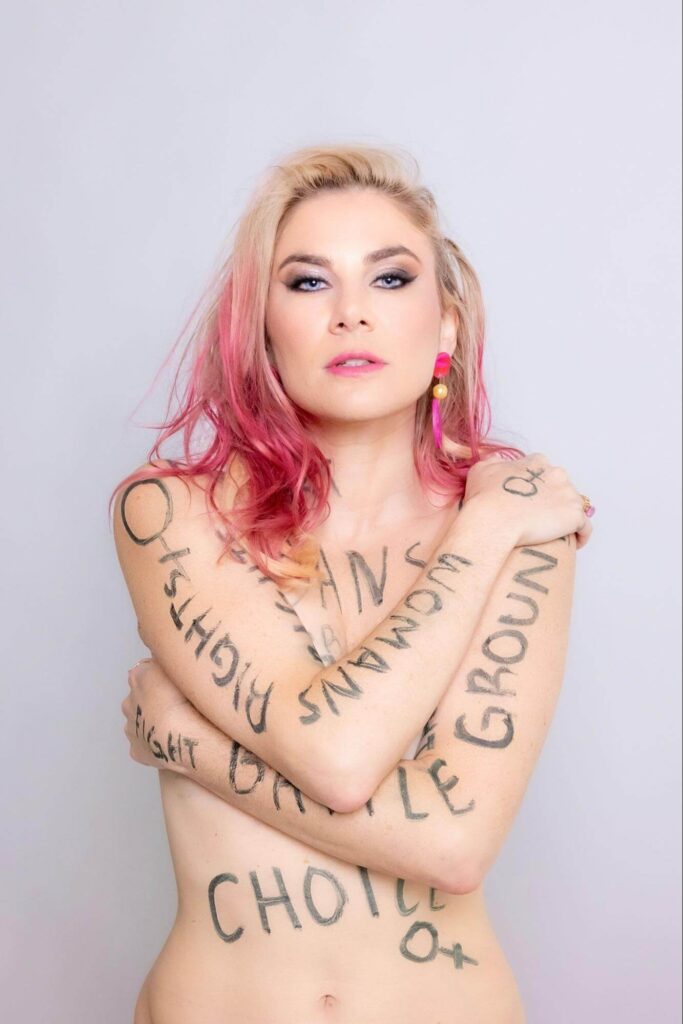
| So, where do you see yourself and your overall brand in five years from now? |
| We want to expand In Pink beyond just the music industry. Eventually, we aim to be the go-to platform for hiring women in every industry. As we discussed, many industries are male-dominated, so we envision extending our reach to encompass the entire entertainment industry and various other businesses. The services offered on In Pink, such as music, audio, business graphics, marketing, and local services like photo and video, can easily translate to different industries. For instance, you could hire a woman on In Pink to design your logo, not necessarily limited to music logos. We’ve already received interest and support from companies in the startup space that align with our mission. Ultimately, we strive to democratize access to industries traditionally guarded by gates and achieve gender equity and equality, not only in the music industry but also in other fields. So, yes, our vision goes beyond music. |
| Awesome! So, if there’s one message you can send to today’s youth, and specifically young women, what would that be? |
| The first thing that comes up for young women is stay off social media, but maybe it’s not stay off social media, but it’s just you gotta take a step back and realize that social media is such a big influence in all of our lives, but it’s not reality, you know? It’s what people present, it’s a highlight reel. I think people are starting to get a little more vulnerable with it, but at the end of the day, it’s curated. So it’s easy to, you know, have, it’s human nature, right, to compare yourself and feel like you should be farther or whatnot. But at the same time, I love to see my friends and people doing great things, and I try to take it the other direction and be inspired by it, you know, and see, if she can do it, I can do it. And, and so I think that’s important. I think the power of community, and I also think for the younger generation, because they’re growing up in this social media world that is so rife with censorship, I think there’s something really dangerous going on there because our team was just having a conversation yesterday about TikTok and, you know, what you can and can’t say, what might get you blocked and apparently, you can’t say the word “dead,” so people are starting to use the word “unalived,” and I’m like, this is, this is nuts. It’s actually funny too, because it’s such a slang term now. People will say, “I’m dead,” they don’t mean dead, right? They mean that’s hilarious or something. So I think it’s a little scary to me that the younger generation is growing up with this fear of what they can and cannot say, like, big brother’s watching, like, freedom of expression is so important, especially when you’re young, you’re developing your voice and your artistic integrity. You have to be willing to be fearless and not worry about getting banned on TikTok or whatever it is and just having artistic integrity. So, I think that’s really important. I mean, of course, no one wants to see people going out spewing hate speech or whatnot, but at the same time people are tiptoeing around, and they’re so scared to say the wrong thing. People don’t even want to ask questions anymore, you know? And we have to talk to each other. And I just think that it’s dangerous. Obviously, we see rates of depression and suicide going up and you wonder why, and it’s like, people don’t feel like they’re free and it affects everyone. I mean, social media affects me too, right? We get sucked in and we’re doom scrolling, and before you know it, two hours have gone by, and you’re like, “Wow, I haven’t done things I need to do.” That was more what my last song is about, but I think it trickles down to, you know, all of Shiragirl’s music, which is ultimately about, you know, creative expression and freedom of speech. It’s just very important right now. So, yeah, I was making a manifesto out of my team, but I said we’re not going to let TikTok censor us. This is important, this is women’s rights, we have to talk about it because we’re specifically talking about Rights Back Right Now and how we want to spread the word through social media, and it has to be a space where you feel free to express yourself. |
| Absolutely, that’s what it’s supposed to be. Is there anything else you want to include? |
| I just want to shout out my band. My band is amazing. This song was written with my guitarist Constance Antoinette, who just joined Demi Lovato’s band. I’m so proud of her. My longtime drummer, Raine Paladino. Lenny J produced it, so this is a new collaboration. I’m very excited for the direction of it sonically because I think Shiragirl has always blended genres. My first album was electro-pop/electro-punk. I’ve always loved different kinds of music. I think people want to put you in a box like you’re rock or punk rock or whatever it is, pop punk. But I think that this song really mixes genres, and it does have that hard edge. If you look at music today, whether it’s Grandson or K Flay, a lot of musicians now in that sort of hard rock space are also experimenting with electronic music and more dance vibes. I love that. So, I’m really proud of that, and I hope that people will be open-minded. But I think that people are gonna like it. Thanks for doing what you do, by the way. |
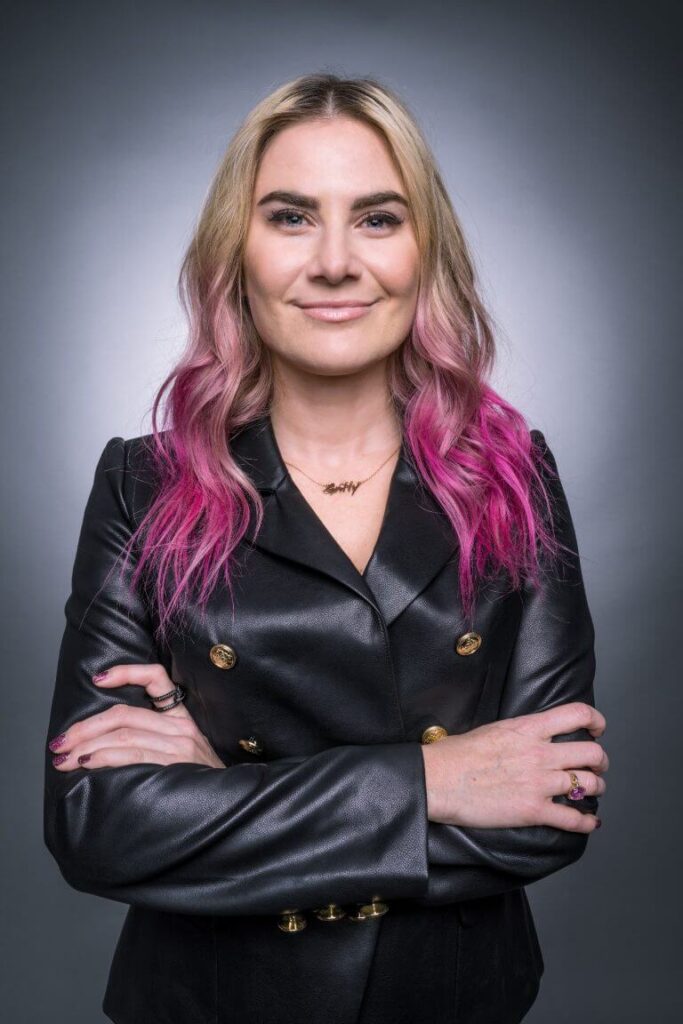
| Oh, of course. |
| Yeah, and representing women in alternative music and hard rock and metal. It’s so important. Thank you so much! |
Follow Shiragirl & Gritty In Pink
Shannon Wilk is a Connecticut-based music industry creative; bassist and photographer. She has brought her bass guitar skills to stages all over the country in various bands, most recently The Heartless and Alice Loves Alien. Dubbed the “female Rudy Sarzo”, Shannon has a unique and captivating stage presence in addition to her distinctive playing style. Since beginning her professional career in 2019, she has made waves in both the live music scene and the digital world, playing legendary stages such as the Whisky A Go-Go and the Monsters of Rock Cruise, as well as accumulating nearly 1 million views across online platforms.
At 17 years old, Shannon Wilk has become a force to be reckoned with in the rock n’ roll scene. In addition to her blossoming music career, she has continued to showcase her passion for live music through concert photography. From KISS to Foo Fighters to Evanescence to Yungblud and more, Shannon has captured rock royalty through her lens. In 2018, she launched her own publication, Rockin’ Interviews, where she has connected with beloved ‘80s heavy metal artists through her independently produced podcast.

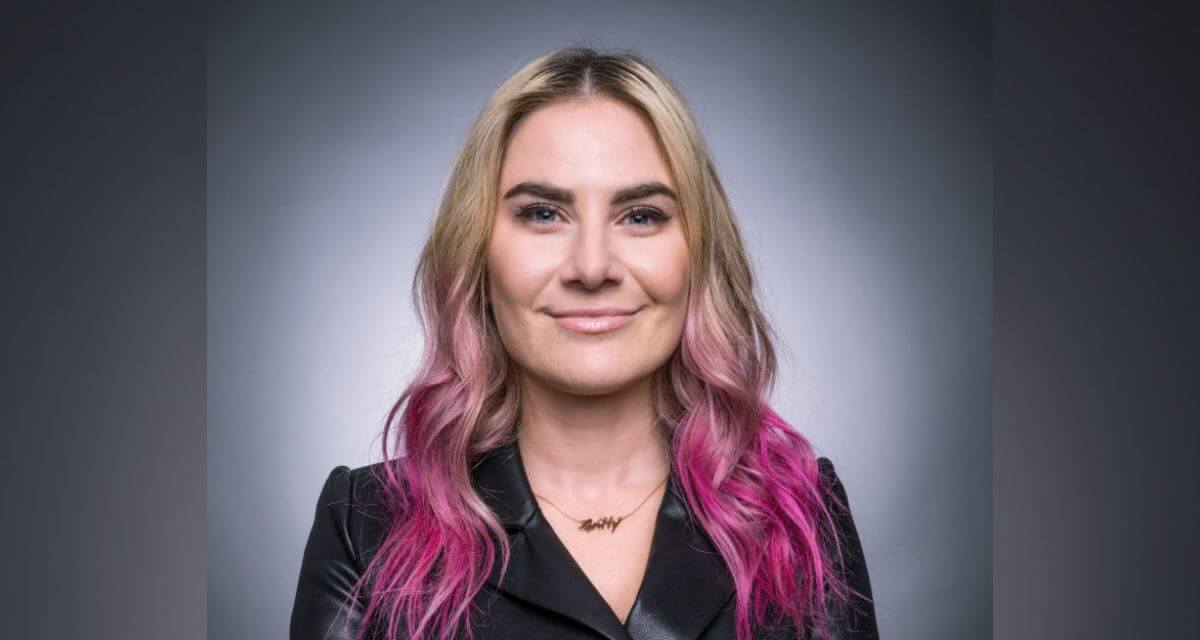
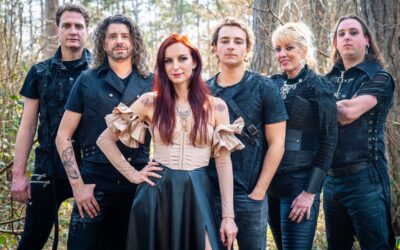
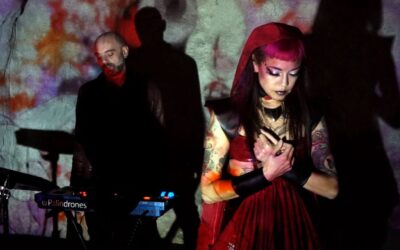
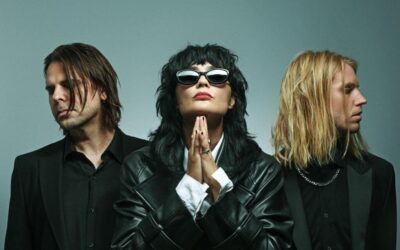
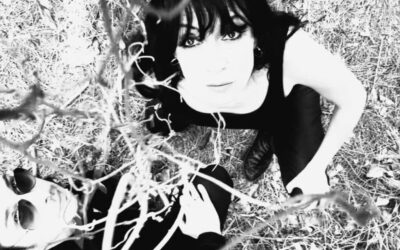
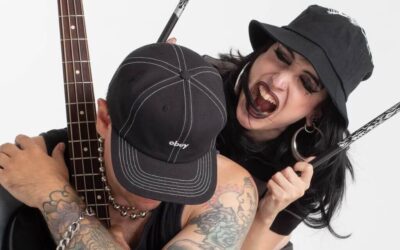
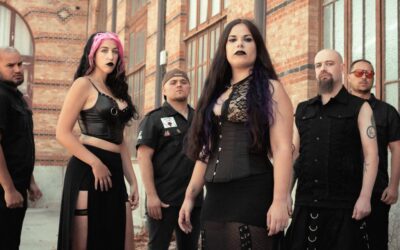

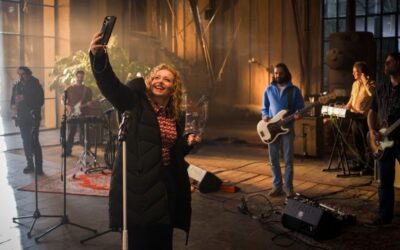



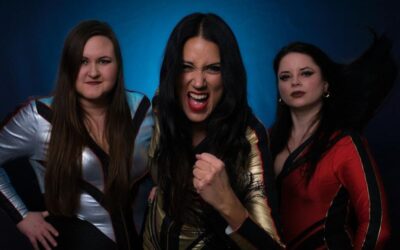
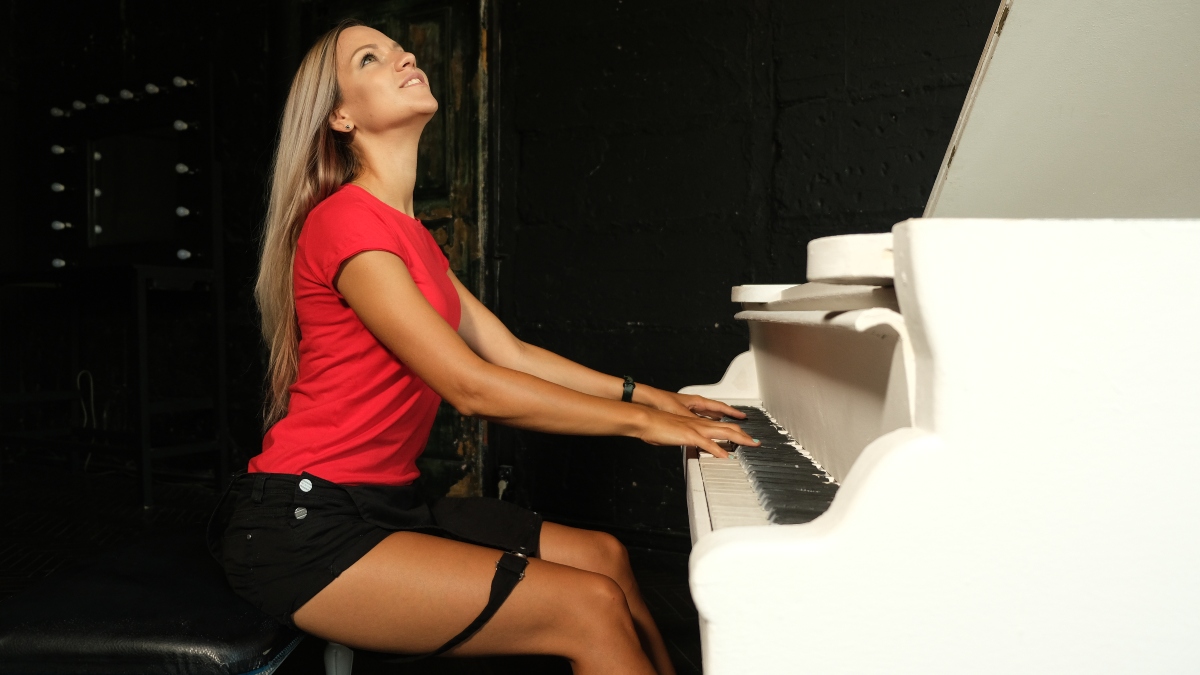
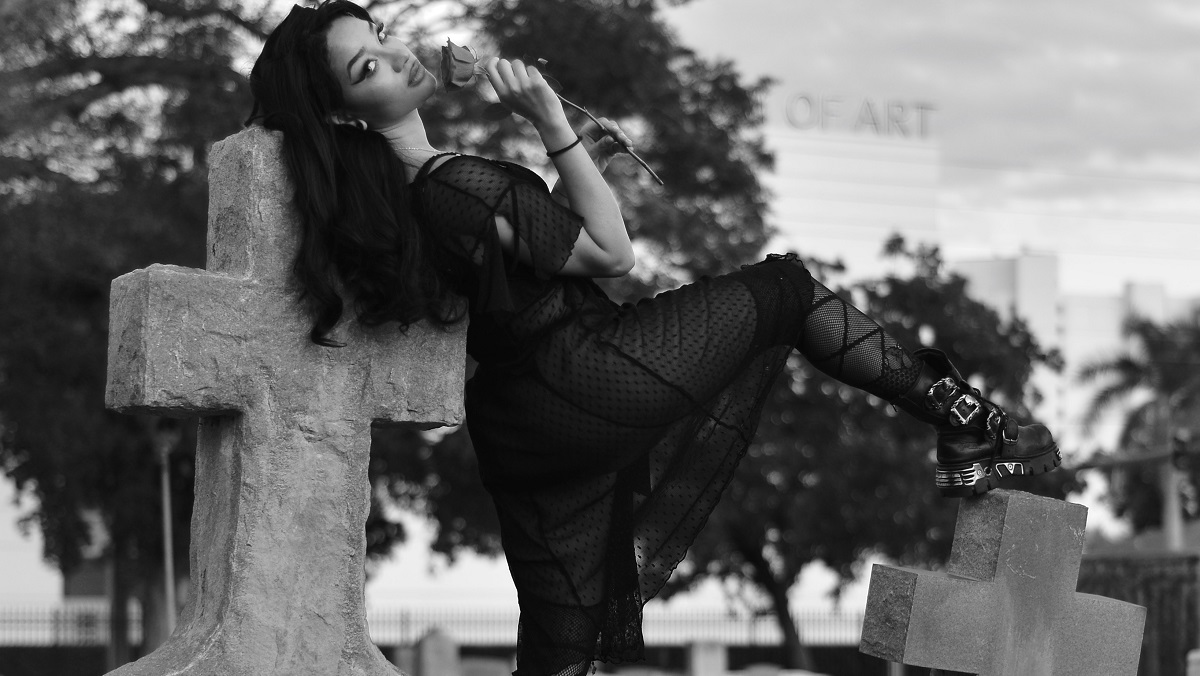
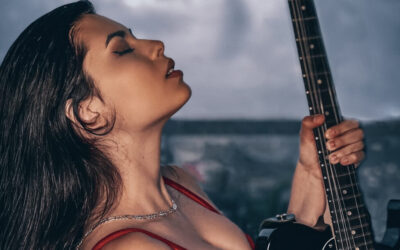
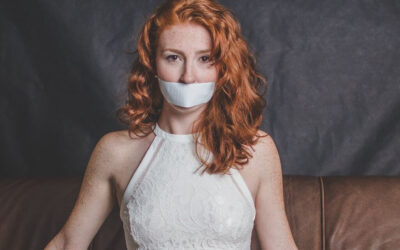
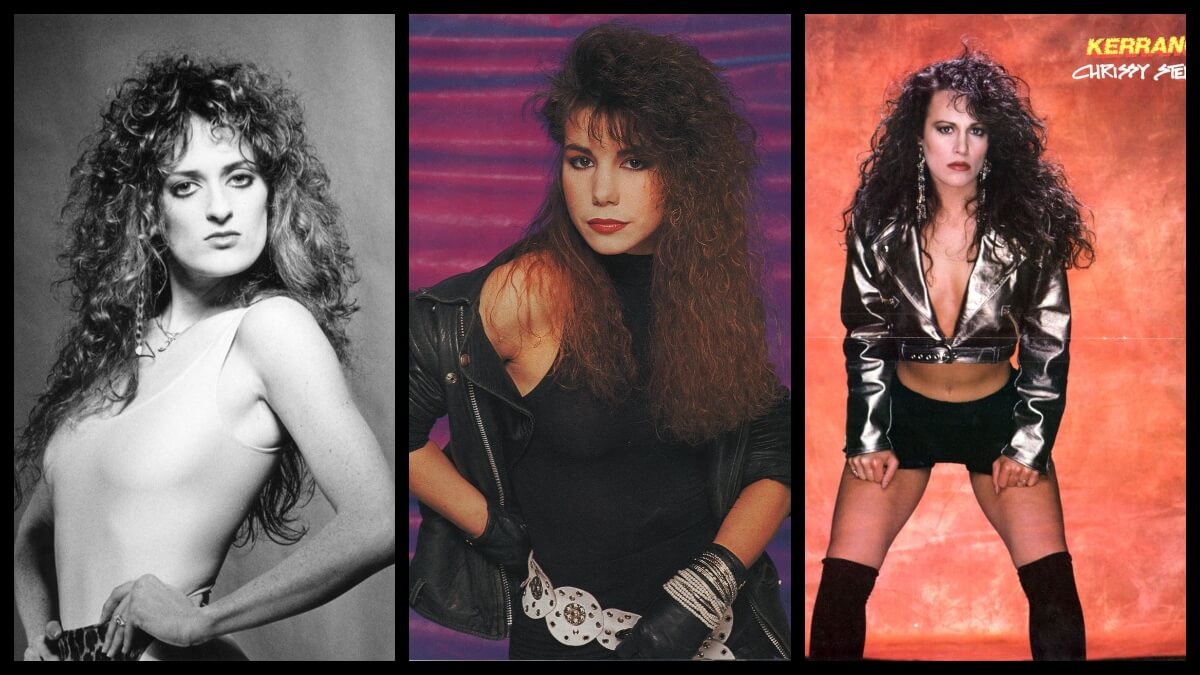

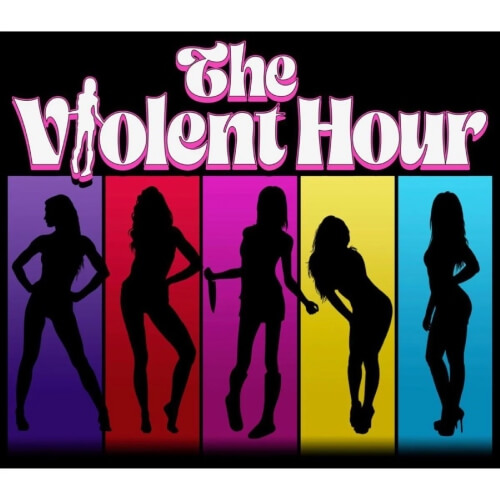
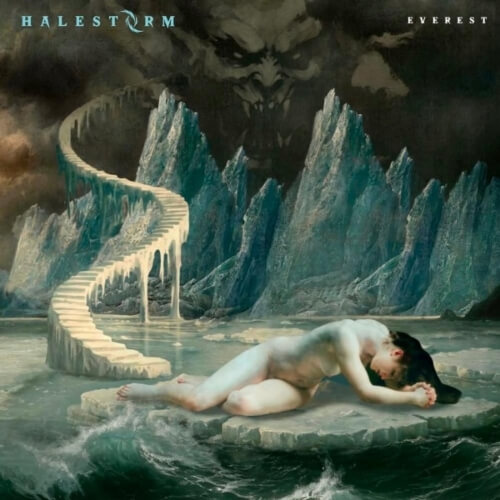
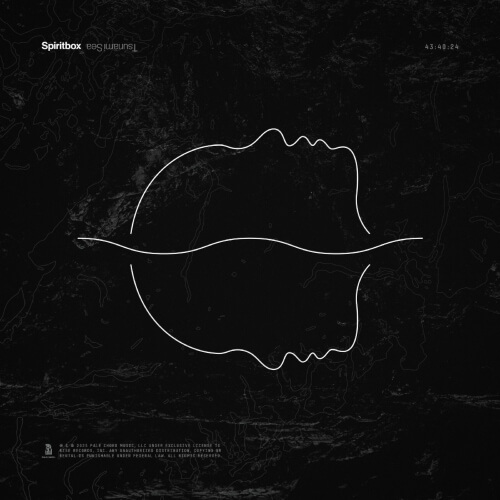
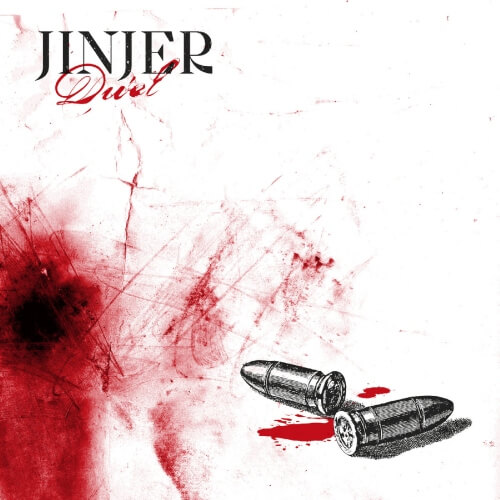
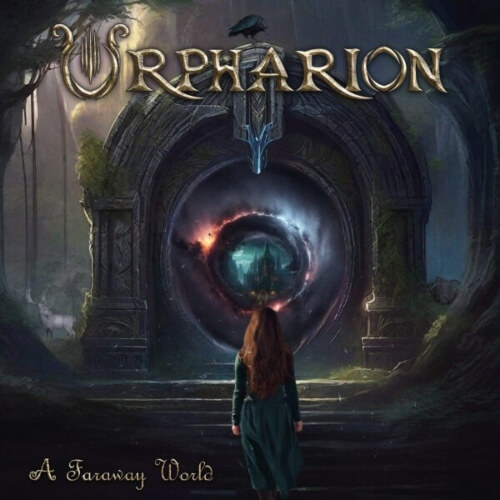
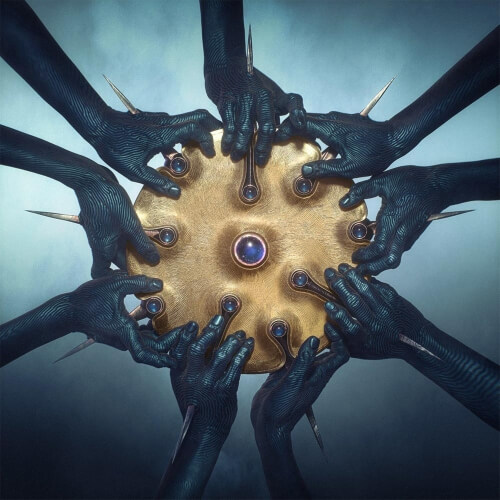
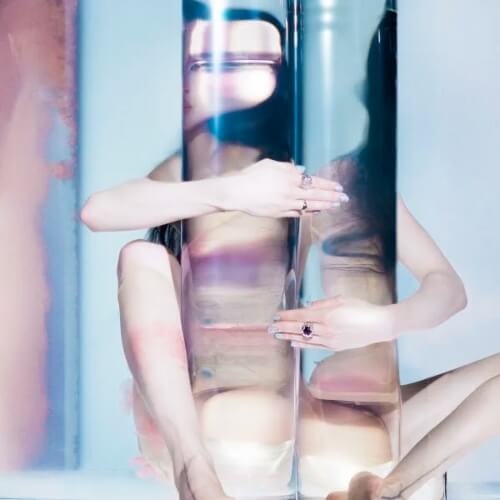
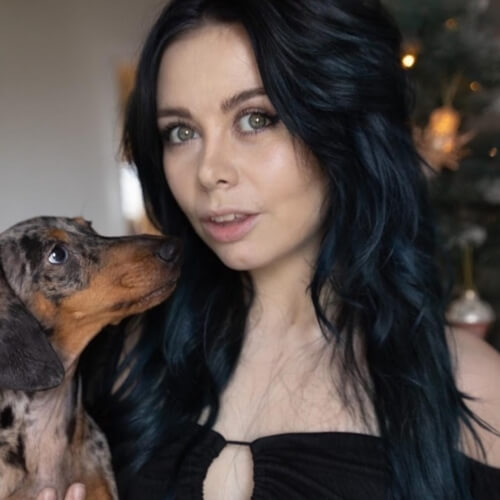
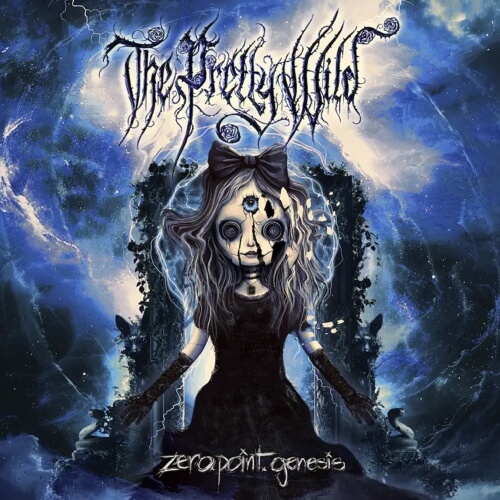
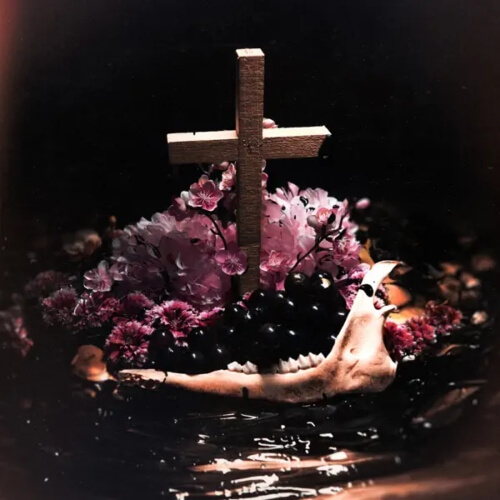
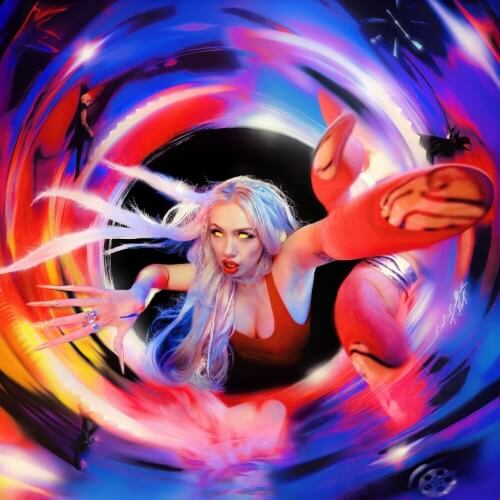
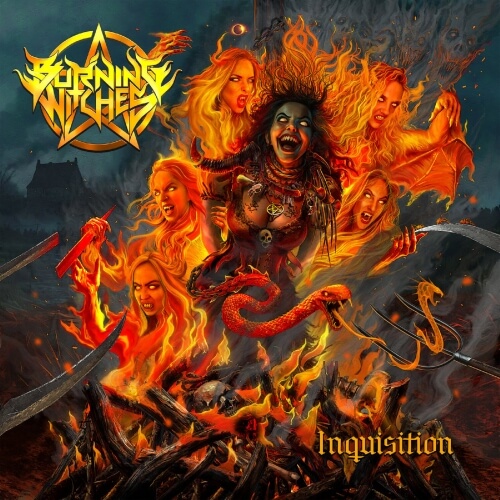
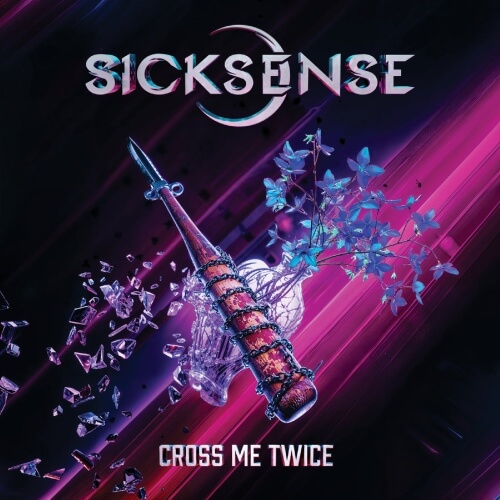
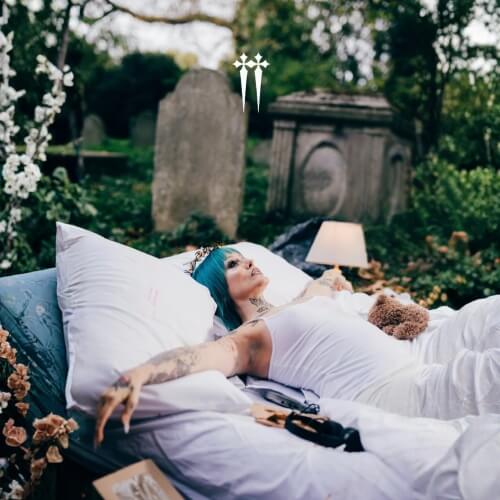
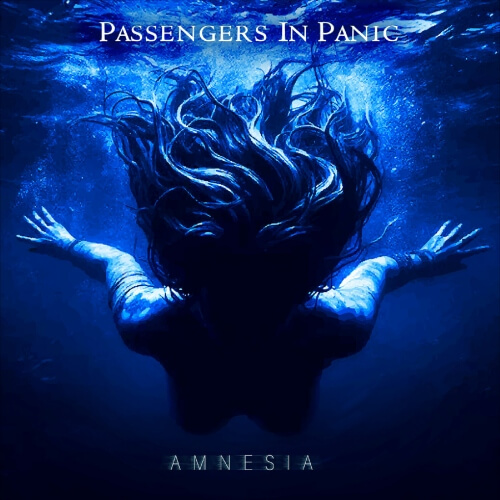
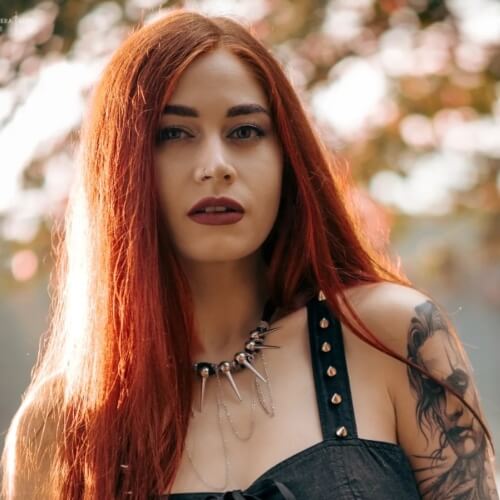
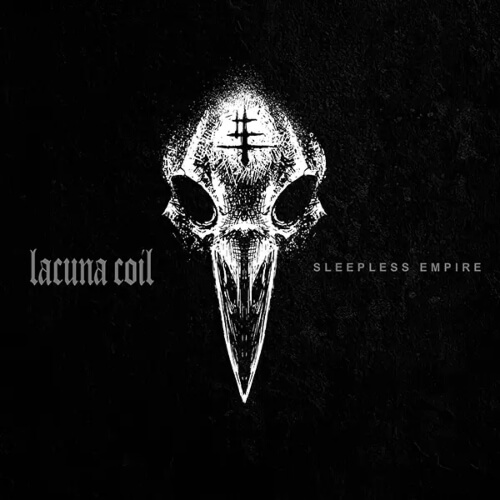
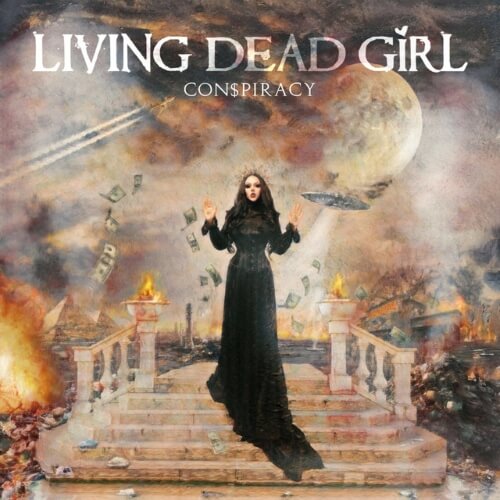
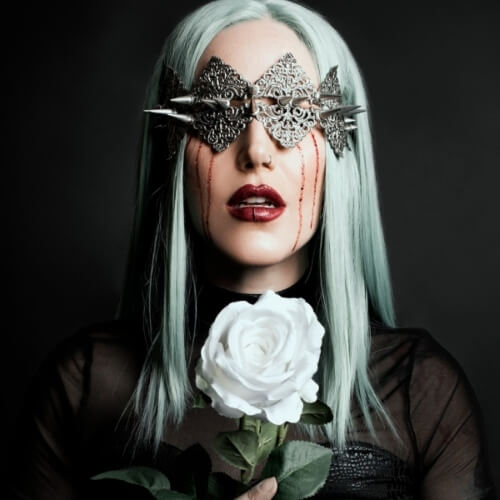
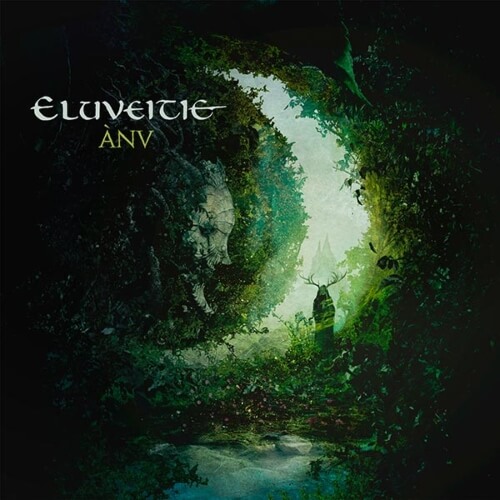
0 Comments